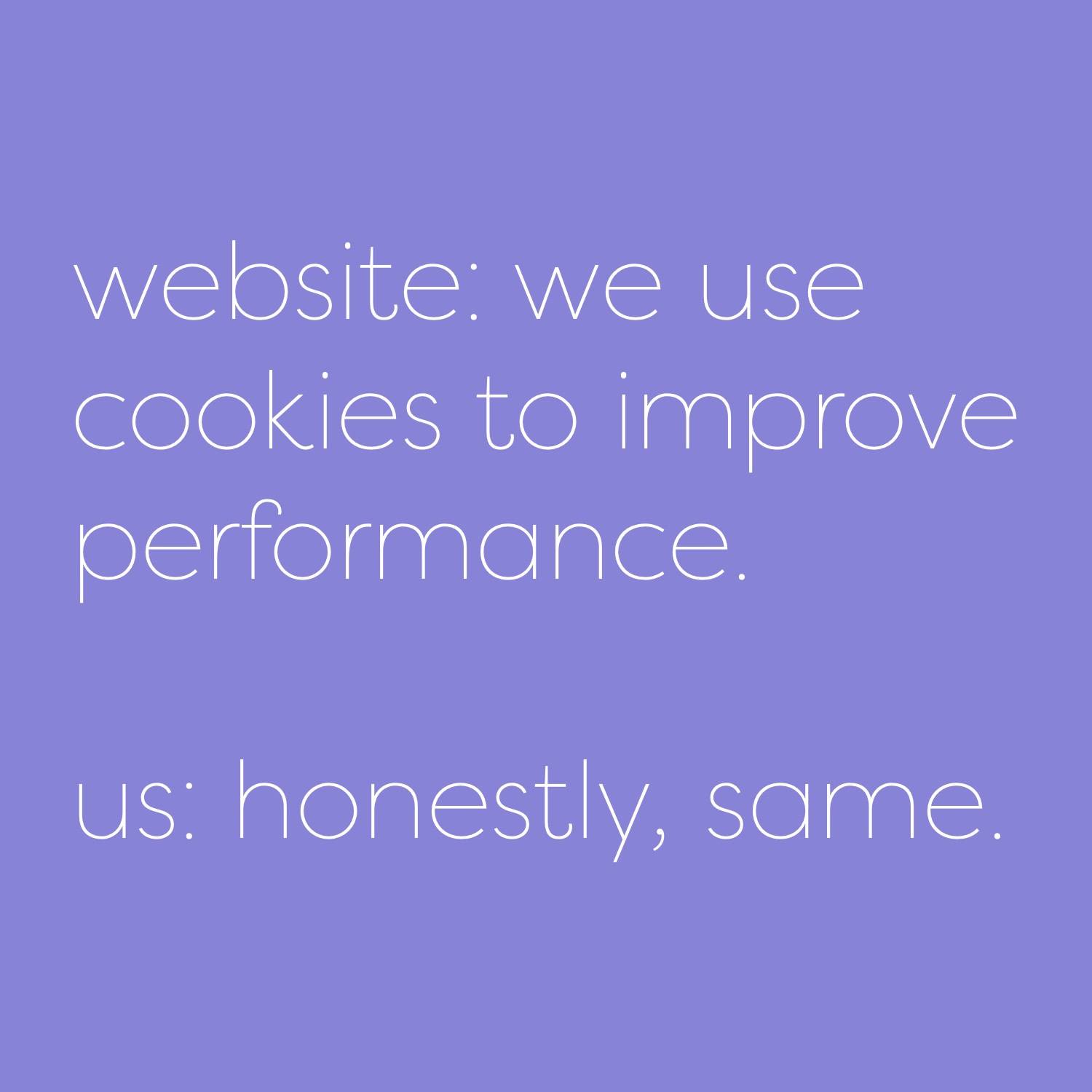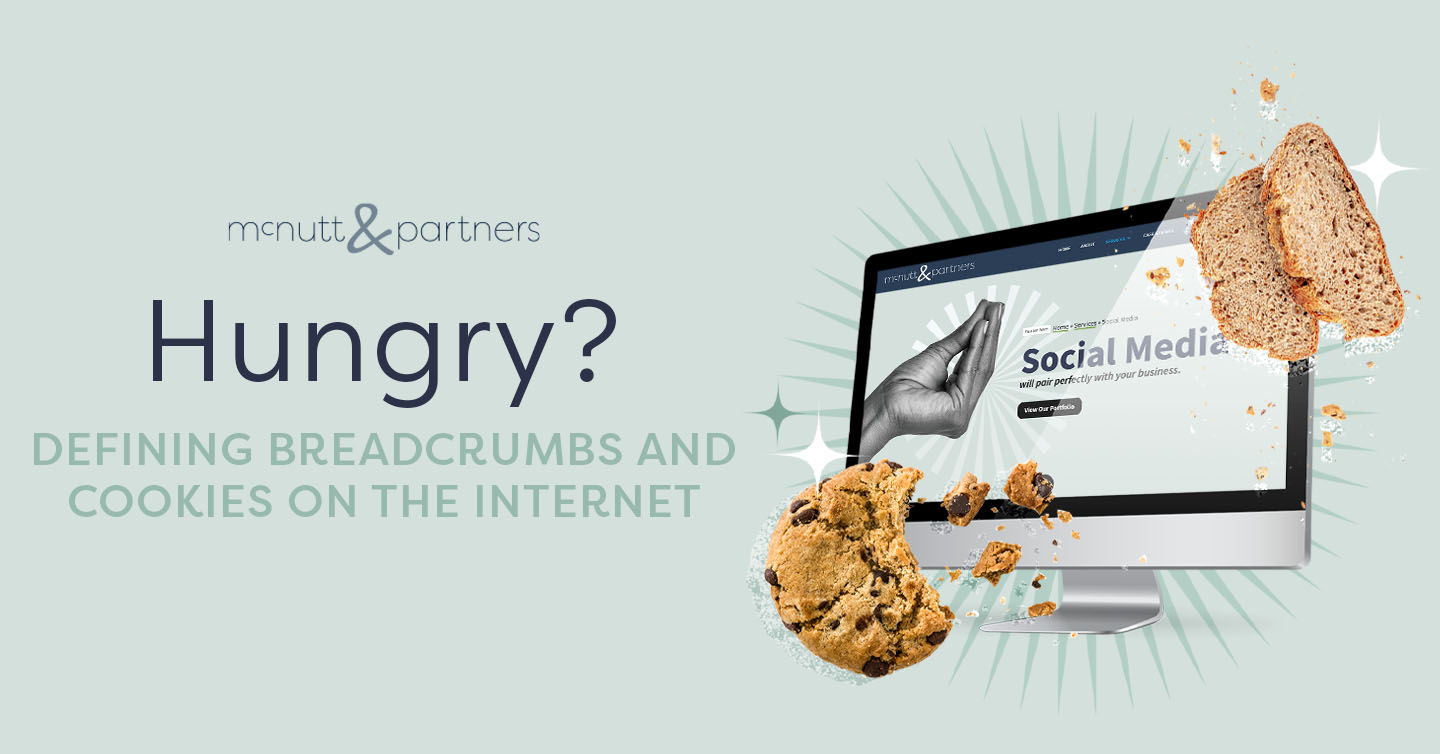Breadcrumbs are useful for adding a tasty layer to meat, crisping the top of your casserole or finding your way home. Cookies are useful because, well, they’re delicious. But what do these two bakery-related foods have to do with the internet and SEO? That’s the question we’re here to answer. In defining breadcrumbs and cookies on the internet, we’ll also explain how they’re helpful when it comes to digital marketing.
Breadcrumbs on the internet
Think back to using breadcrumbs to find your way home—a concept many of us recognize from the fairy tale, “Hansel and Gretel.” Just like they were a navigational tool for Hansel and Gretel, they are also a navigational tool online.
Breadcrumbs online are a text path indicating where a user is on a website. For example, the path to our Social Media Services page is: Home > Services > Social Media. This is displayed where it says “You are here” on that page.

The advantages of breadcrumbs
Much like Hansel and Gretel, breadcrumbs let internet users know how they can navigate back home if they get “lost” on a website.
Not only do breadcrumbs serve to enhance the user experience, but also, Google uses breadcrumbs to read your website and determine its structure. This contributes to where your page ranks in a search. Essentially, the better the readability and structure, the higher you will rank among your competitors.
You may also notice breadcrumbs in a search result. For example, Googling “tacos near me,” we get this result.

We see the start of a breadcrumb trail in this result. The Auburn-Opelika Tourism website URL > Blog > The Tasty Taco Trail of Auburn-Opelika.
Showcasing breadcrumbs in search results is Google’s way of making those results more appealing to users, and better displaying where within a website that result’s content resides.
Cookies on the internet
Breadcrumbs and cookies on the internet both have to do with navigation in a sense; however, when it comes to cookies, the website visitor may be less aware of them. That’s because it’s all happening in the background.
What’s happening exactly? Web servers create small files of data and send them to web browsers, and these files are called “cookies.” The information serves to “inform” websites about a web user in an effort to personalize that user’s experience online. These cookies can also serve an advertising purpose, as the identifiers or other small pieces of data in them can be used to help track user activity and serve up future ads based on that activity.

Many websites using cookies display a disclaimer that says something to the effect of: “We use cookies to enhance your experience on our websites. By further navigating this site, you accept this.” That’s because by law in some regions, cookies that are not strictly necessary for website functionality, such as those used for analytics and advertising, can’t be placed without user consent. These consent banners are most often seen on websites that have an audience including European Union residents, and similar elements are seen on websites with a significant audience within the state of California.
Cookies and SEO
Google and other search engines use the identifiers within cookies, either anonymous or tied to your logged-in account, to remember users’ search preferences and inferred or explicitly-provided demographic data. This helps Google better tailor the ads it shows not only to your search terms, but to the audience the advertiser has selected, such as “people over the age of 25 with interests that include gardening”.
Google also personalizes its organic search results to a varying degree based on this data. Thus, if as a digital marketer your website is well-associated with content that user has searched for in the past, the interests it believes that user has, or other factors about that user, the search engine may be more likely to serve it to that user. This is all possible because of the cookies on that user’s device.
In a “nutt” shell
Has talking about breadcrumbs and cookies on the internet made you hungry? It certainly has for us. But before you head to the local bakery, remember that the point of defining breadcrumbs and cookies on the internet is to help give you a better understanding of how your website can use these tools to your advantage.
Need help? We’ve got you!
McNutt & Partners is a full-service advertising and digital marketing agency. Contact us today for your marketing needs! Call 334-521-1010, or visit our contact page.

